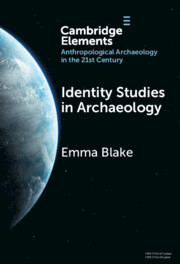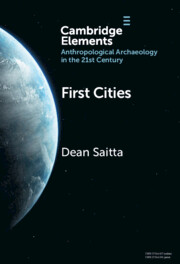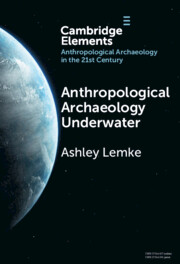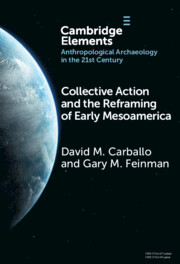This Element offers anthropological and contemporary perspectives in the study of prehistoric and historic societies globally and cutting-edge research with balanced coverage of well-known sites and understudied times and places. We solicit contributions based on three themes: 1. new methods and technologies producing fresh understandings of the past; 2. theoretical approaches challenging basic concepts and offering new insights; 3. archaeological responses for the 21st century providing informed choices for the present. Individual volumes focus on specific sites and regions that highlight the diversity of human experience around the world and across history which include scholars working throughout North America, Mesoamerica, Europe and the Mediterranean, Africa, the Middle East, and South and East Asia and readers with an avid interest in the latest frontiers in archaeological thought. The media-rich volumes will be an important resource for students, scholars.
If you would like more information about this series, or are interested in writing an Element, please contact Managing Editors: Rita Wright, rpw2@nyu.edu or John Millhauser, millhauser@ncsu.edu
About the Series Editors
Eli Dollarhide is an archaeological anthropologist who specializes in the prehistory of the Middle East with a focus on the Persian Gulf. His research investigates the role of small and rural settlements in the development of Bronze Age exchange networks and political systems. Dollarhide co-directs research at the UNESCO World Heritage Site of Bat, Oman and investigates ancient ceramic technologies. See: https://nyuad.nyu.edu/en/research/faculty-labs-and-projects/humanities-research-fellowship-program/research-fellows/eli-dollarhide.html.
Michael Galaty is Professor of Anthropology in the Department of Anthropology and Director and Curator of European and Mediterranean Archaeology in the Museum of Anthropological Archaeology at the University of Michigan. He conducts fieldwork in Albania, Greece, and Kosovo, with a focus on the prehistoric origins of social inequalities. To that end, he utilizes intensive regional survey and targeted excavations, along with various laboratory techniques, to track the changing economic and political factors that lead to transformative changes in Mediterranean and Balkan social systems, during the Bronze Age, in particular, mgalaty@umich.edu.
Junko Habu is Professor of Anthropology and Chair of the Center for Japanese Studies, University of California, Berkeley, and Affiliate Professor of the Research Institute for Humanity and Nature. She has published extensively on Japanese and East Asian archaeology, hunter-gatherer archaeology and historical ecology. Her current research focuses on the intersection of archeology, agroecology and traditional ecological knowledge to consider the resilience of socioeconomic systems in the past, present and future. For more information, see https://junkohabu.com/
John K. Millhauser is an Associate Professor of Anthropology in the Department of Sociology and Anthropology at North Carolina State University. His archaeological work in Mexico centers on rural communities and social economies under Mexica and Spanish rule. His current research integrates economic anthropology and political ecology to better understand the origins of poverty and structural violence. For more information, visit chass.ncsu.edu/people/jkmillha/
Patricia A. McAnany, Kenan Eminent Professor and Chair of Anthropology at the University of North Carolina at Chapel Hill, is co-director of Proyecto Arqueológico Colaborativo del Oriente de Yucatán—a community-archaeology project at Tahcabo, Yucatán, México. She co-founded and directs InHerit: Indigenous Heritage Passed to Present (www.in-herit.org) a UNC program that generates collaborative research and education projects focused on archaeology and cultural heritage with communities in the Maya region and North Carolina. She is the author of several books (most recently Maya Cultural Heritage: How Archaeologists and Indigenous Peoples Engage the Past) as well as journal articles and book chapters on a range of archaeological and heritage topics.
Rita Wright, Professor Emerita of Anthropology at New York University. Using Near Eastern texts as secondary sources and ancient technologies (ceramics and weaving), she investigates divisions of labor and women’s contributions to history. In the field she has conducted research in Afghanistan, Pakistan, and Iran, predominately in Baluchistan at Mehrgarh and the Punjab, Pakistan, at the city of Harappa. Her Landscape and Settlement survey of Harappa’s rural areas is the first conducted in studies of the Indus civilization. She is founder and editor of Cambridge University Press, Case Studies in Early Societies, especially Ancient Indus: Urbanism, Economy, and Society (Cambridge University Press, 2010); rpw2@nyu.edu.
Elements in this series
-

- Element
Identity Studies in Archaeology
-

- Element
First Cities




